Humanitarians in East and Southern Africa are tenaciously learning their way to a new humanitarian era.
In this article we share a series of reflections on core activities from the third quarter of 2023 including the region’s first Humanitarian Summit in Kenya, the first ever Education in Emergencies (EiE) Fundamentals training in Ethiopia and learning activities from Mozambique to Zimbabwe.
Nairobi, Kenya | September
For the first time ever, over 40 humanitarians from across a network of country programmes in East and Southern Africa came together to discuss their priorities, challenges and plans for the future. In the 5-day Humanitarian Summit, participants exchanged ideas on strategies to drive change and achieve collaborative impact.
With a deliberate focus on three i’s – inform, inspire and initiate change; sessions throughout the week combined team coaching techniques, technical procedural discussions and new leadership approaches.
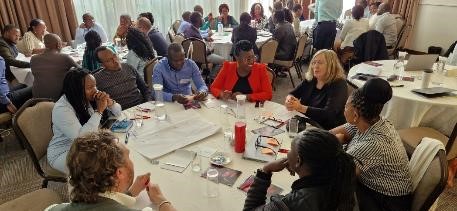
By the end of the summit, participants left with renewed drive and new lessons learned or emphasised. A participant noted:
“All civil society organisations have power; we need to learn to link with them and work together. Always link your daily work to the strategy and check how is it contributing to the Global Strategy.”
Speaking on the importance of setting up crucial spaces for dialogue, such as this region-wide Humanitarian Summit, Janet Nyaoro, HLA Lead in East and Southern Africa said: “I am very glad that as one of the organisers and facilitators in this summit, we managed to create a safe space where issues were raised, status quo challenged, and some uncomfortable conversations took place. Some resolutions were reached while others were carried forward. The feedback we received from those who attended was encouraging and there were also lessons we picked which can help us improve next year’s summit.
Addis Ababa, Ethiopia | September
52 members of Ethiopia’s National Education Clusters recently completed the Education in Emergencies (EiE) Fundamentals blended course. This was the first time an EiE Fundamentals course was delivered in Ethiopia. Participants from NGOs, INGOs, the UN and European Civil Protection and Humanitarian Aid Operations (ECHO) completed the EiE Module 1: Foundational Concepts & Frameworks on the HLA’s free digital learning platform, Kaya prior to the 5-day in-person workshop.
EiE Fundamentals is one of three EiE courses offered by the HLA. The course equips EiE and education professionals with core competencies needed to initiate, design, and implement an EiE response in their unique contexts. Many participants at this training were from local organisations, in line with the HLA’s goal of strengthening civil society organisations.
Colleagues from Save the Children in Ethiopia, and UNICEF as well as two current EiE students and one graduate of the EiE Certificate of Advanced Studies (CAS) supported the HLA team to facilitate and deliver the training.
Rose Wahome, HLA Learning Solutions Specialist in East and Southern Africa said: “It was a great opportunity seeing the EiE CAS graduates in action as facilitators, and it also enabled us to run two cohorts reaching over 50 participants at a go. Additionally, the CAS graduates used Amharic for most sessions which enabled participants in their cohort to participate fully as they did not have to use English all the time”.
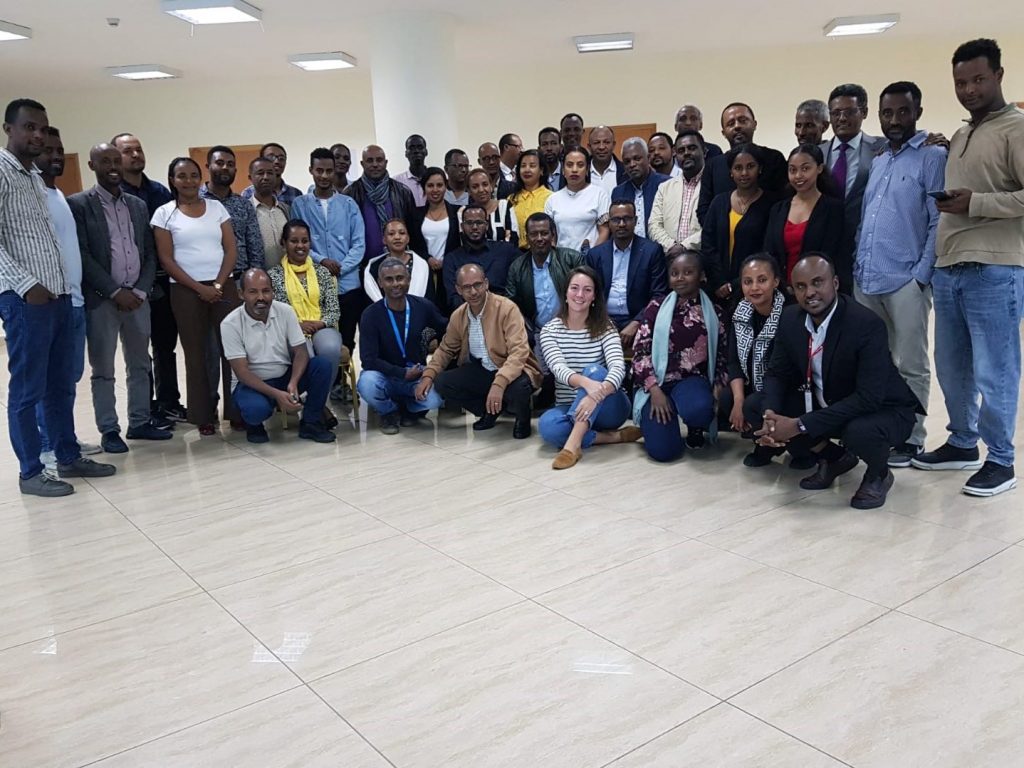
Commenting on the blended learning experience, one participant from a national NGO said: “The training was fundamental and comprehensive, as stated in the title. I have learned a lot of things that are very basic and mandatory for those implementing EiE and education practitioners.”
Another participant from an international non-governmental organisation shared: “Since my experience has been in the development sector, it is a good learning opportunity for me. The links attached for further learning are also important. Thank you so much.”
Chilanga, Zambia | August
Twenty-nine humanitarians from Save the Children International and partners, joined a 5-day Humanitarian Emergency Preparedness Training delivered by the HLA ESA team.
Emergency Preparedness Planning (EPP) is a key element of anticipatory action; and creates an opportunity to plan, prepare for and possibly mitigate the impact or scale of a crises. This training covered humanitarian principles and standards, Sphere, conflict sensitivity programming, humanitarian coordination, and leadership, amongst others.

The training was an opportunity to reflect on the specific needs of the people who were present in the room. During the training and while conducting the EPP, participants ranked drought as the highest risk followed closely by flooding both of which lead to disease outbreaks, such as Cholera. These are expected to be used in developing an EPP document for 2024.
An anticipatory action simulation exercise was organised as part of the training. The simulation helped to provide insight and knowledge to better plan for, design and implement humanitarian programming.
At the end of training, participants set up key actions to continue in the train of being fully prepared ahead of an emergency and upskilling themselves in disaster risk management.
One key emphasis was on the importance of a lasting mutual partnership between international non-governmental organisations (INGOs) and local/national NGOs to share information, get feedback and learn as a team.
Speaking on lessons learned and points to take away, a participant noted:
“The training was awesome and reminded me how we sometimes cause more harm to our target audiences than Doing No Harm due to our lack of empathy and sensitivity in the process. My eyes were opened to have a holistic approach with high sensitivity in the process.”
Reflecting on the training, Wycklife Ajowi, Regional Programme Administrator for the HLA in ESA said: “I was truly inspired by the passion and commitment from the team to making a positive impact to communities. It was an enriching experience to support the facilitation of humanitarian emergency preparedness training and shared learning on how to navigate challenges we face in humanitarian work will really improve teams’ invaluable work.”
Zimbabwe | August
This two-day intense training delved into the concept of localisation and its practicalities in the relevant context. Janet Nyaoro, HLA ESA Lead and Sisay Dejene, Heads of Partnerships at SCI Ethiopia facilitated this training, which was delivered to all staff of SCI Zimbabwe – country office.
Local and national responders are best placed to understand the needs of their community, local circumstances, culture, and politics. They are usually the first to respond to crises and often have access that international actors cannot achieve; they may be the only responders. Local and national responders are generally best placed to link response efforts to resilience building, preparedness, and recovery, because they are present before, during and after a crisis.
« The goal is to advance localisation in practice and empower more people with knowledge to lead on progressing the localisation agenda. »
The training sessions were honest, interactive, and met with enthusiasm. Covering the journey of localisation including the demands required to make it work, its dimensions, spectrum, experiences, and best practices from localisation champions in various countries. Participants were also presented with some of the best ways to demonstrate partnership principles.
For next steps, the training laid emphasis on some key action points such as identifying a localisation champion, establishing a localisation strategy, mobilising funding for advancing more localised responses, enhancing the understanding of the localisation policy, and developing a localisation road map.
The goal is to advance localisation in practice and empower more people with knowledge to lead on progressing the localisation agenda.
Nampula, Mozambique | July
Education in Emergencies (EiE) Fundamentals training in Mozambique was organised and co-facilitated by two EiE Certificate of Advanced Studies (CAS) course participants along with two HLA colleagues in the East and Southern Africa (ESA) office. The training was conducted in English and Portuguese.
Allex, one of EiE CAS participants and co-facilitator said: “The training was a great success. Most participants who attended are already working in the humanitarian sector. The discussions around child participation have provided tools and options that participants can use on Assessment, Design, Implementation, as well as Monitoring and Evaluation interventions. Another topic which has been mentioned by participants as to have been very useful is the Conflict Sensitive Education, where they became aware that EiE interventions should not cause any harm to children and communities.”
Related News
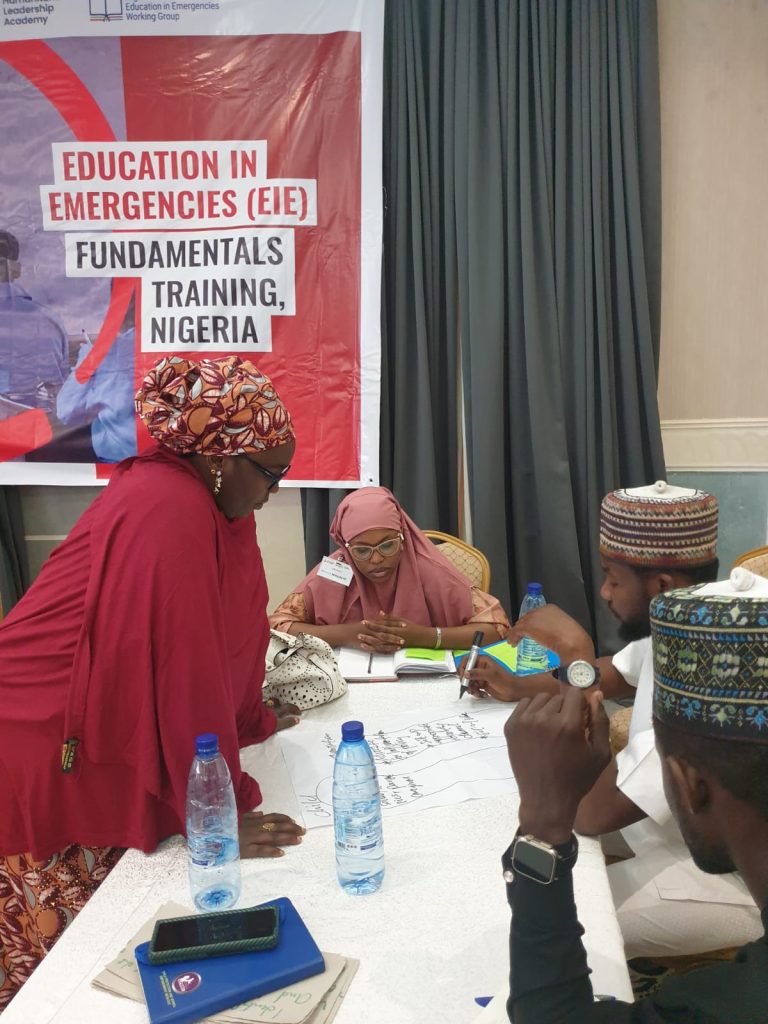
A first for the WCA team: delivering EiE Fundamentals training in Nigeria
3rd avril 2024
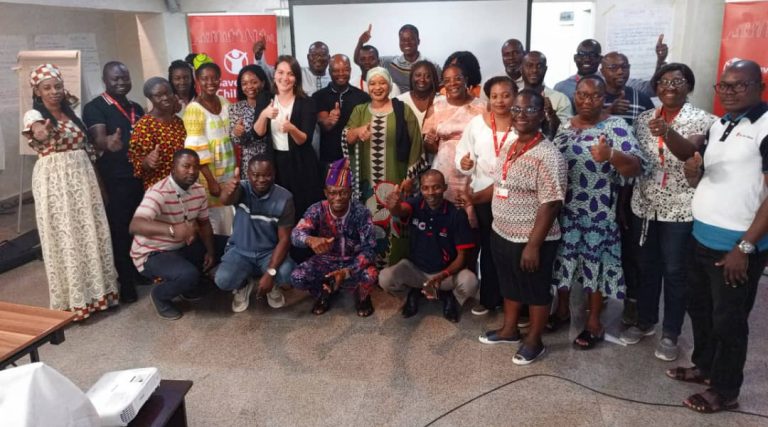
Education in emergencies & development aid: Working in partnership to deliver localised training
3rd avril 2024
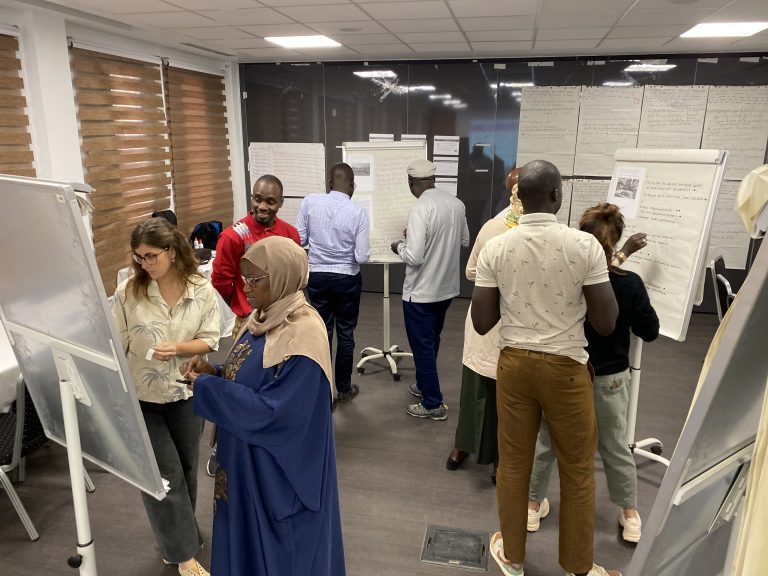
Strengthening capacity across West and Central Africa: Humanitarian Operations Programme Core in Dakar, Senegal
3rd avril 2024